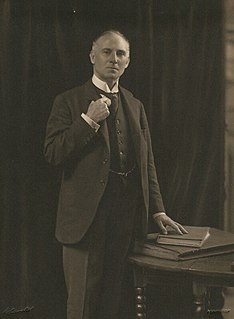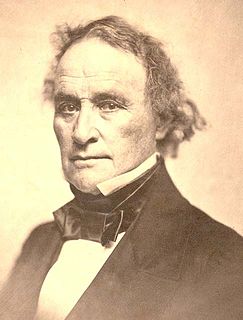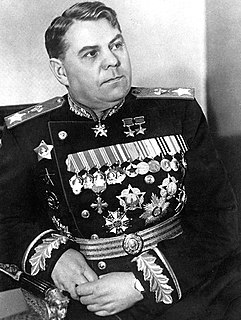A Quote by Herman Melville
There never was a great man yet who spent all his life inland.
Related Quotes
If you meet at dinner a man who has spent his life in educating himself - a rare type in our time ... you rise from table richer, and conscious that a high ideal has for a moment touched and sanctified your days. But Oh! my dear Ernest, to sit next to a man who has spent his life in trying to educate others! What a dreadful experience that is!
If the title of a great man ought to be reserved for him who cannot be charged with an indiscretion or a vice, who spent his life in establishing the independence, the glory and durable prosperity of his country; who succeeded in all that he undertook, and whose successes were never won at the expense of justice, integrity, or by the sacrifice of a single principle--this title will not be denied to Washington.
The most dangerous kind of man is not the one who spent his youth shoving others around. That kind of man gets lazy, and is often too content with his life to be truly dangerous. The man who spent his youth being shoved around, however … When that man gets a little power and authority, he often uses it to become a tyrant on par with the worst warlords in history.
Life is in short cycles or periods; we are quickly tired, but we have rapid rallies. A man is spent by his work, starved, prostrate; he will not lift his hand to save his life; he can never think more. He sinks into deep sleep and wakes with renewed youth, with hope, courage, fertile in resources, and keen for daring adventure.
...a man estimable for his learning, amiable for his life, and venerable for his piety. Arbuthnot was a man of great comprehension, skilful in his profession, versed in the sciences, acquainted with ancient literature, and able to animate his mass of knowledge by a bright and active imagination; a scholar with great brilliance of wit; a wit who, in the crowd of life, retained and discovered a noble ardour of religious zeal.
If a man were only to deal in the world for a day, and should never have occasion to converse more with mankind, never more need their good opinion or good word, it were then no great matter (speaking as to the concernments of this world), if a man spent his reputation all at once, and ventured it at one throw; but if he be to continue in the world, and would have the advantage of conversation while he is in it, let him make use of truth and sincerity in all his words and actions; for nothing but this will last and hold out to the end.
Public opinion contains all kinds of falsity and truth, but it takes a great man to find the truth in it. The great man of the age is the one who can put into words the will of his age, tell his age what its will is, and accomplish it. What he does is the heart and the essence of his age, he actualizes his age. The man who lacks sense enough to despise public opinion expressed in gossip will never do anything great.
The best Armour of Old Age is a well spent life preceding it; a Life employed in the Pursuit of useful Knowledge, in honourable Actions and the Practice of Virtue; in which he who labours to improve himself from his Youth, will in Age reap the happiest Fruits of them; not only because these never leave a Man, not even in the extremest Old Age; but because a Conscience bearing Witness that our Life was well-spent, together with the Remembrance of past good Actions, yields an unspeakable Comfort to the Soul
A healthy man, with steady employment, as wood-chopping at fifty cents a cord, and a camp in the woods, will not be a good subjectfor Christianity. The New Testament may be a choice book to him on some, but not on all or most of his days. He will rather go a-fishing in his leisure hours. The Apostles, though they were fishers too, were of the solemn race of sea-fishers, and never trolled for pickerel on inland streams.
Everything necessary to understand my grandfather lies between two stories: the story of the tiger’s wife, and the story of the deathless man. These stories run like secret rivers through all the other stories of his life – of my grandfather’s days in the army; his great love for my grandmother; the years he spent as a surgeon and a tyrant of the University. One, which I learned after his death, is the story of how my grandfather became a man; the other, which he told to me, is of how he became a child again.
When compiling his great dictionary, the young Noah Webster travels to the Himalayas, where he climbs to the cave of the world's wises man. 'O, great sage,' he says, 'tell me the meaning of life.' The sage sits Noah at his feet and, with great solemnity, commences to unfold the meaning of life. When finished, he places a hand on the young man's shoulder and says, 'Do you have any other questions, my son?' Noah flips a page in his notebook and says, 'You wouldn't know the meaning of lift, would you?'






































